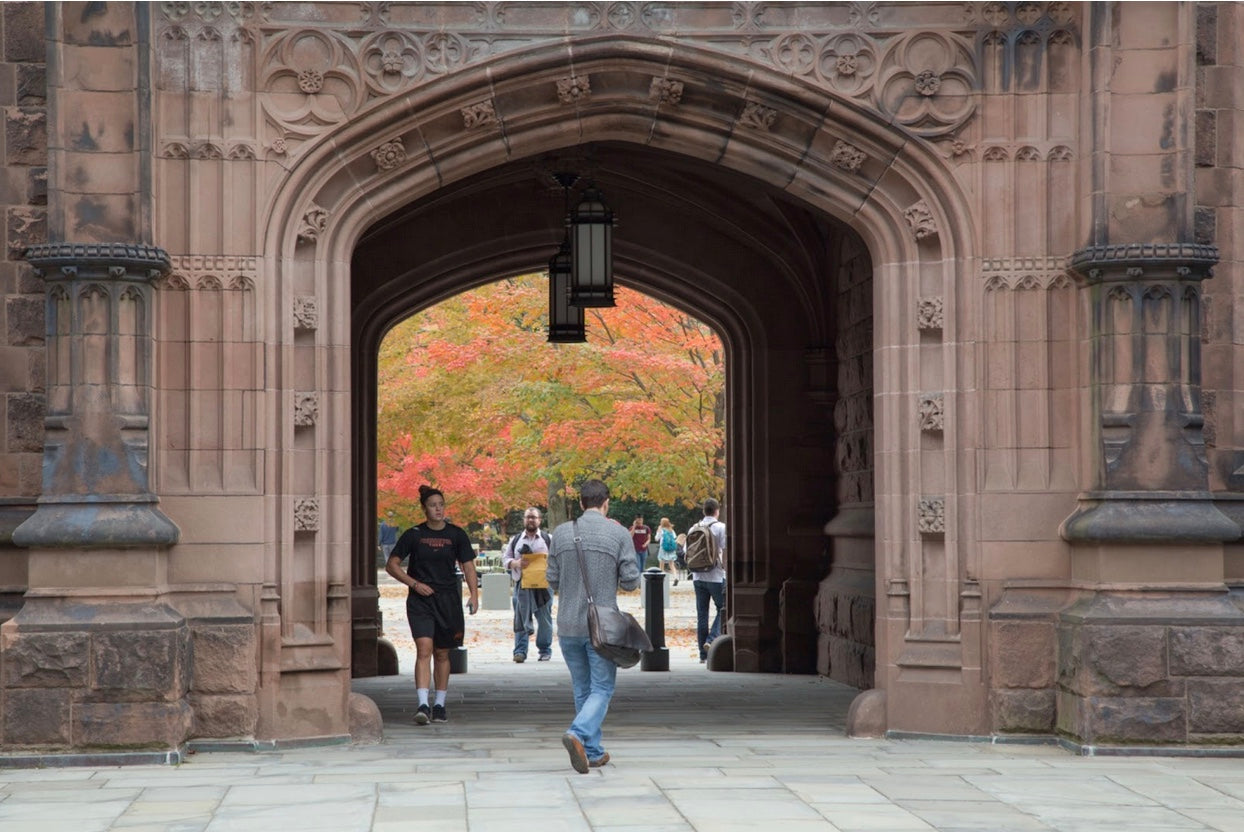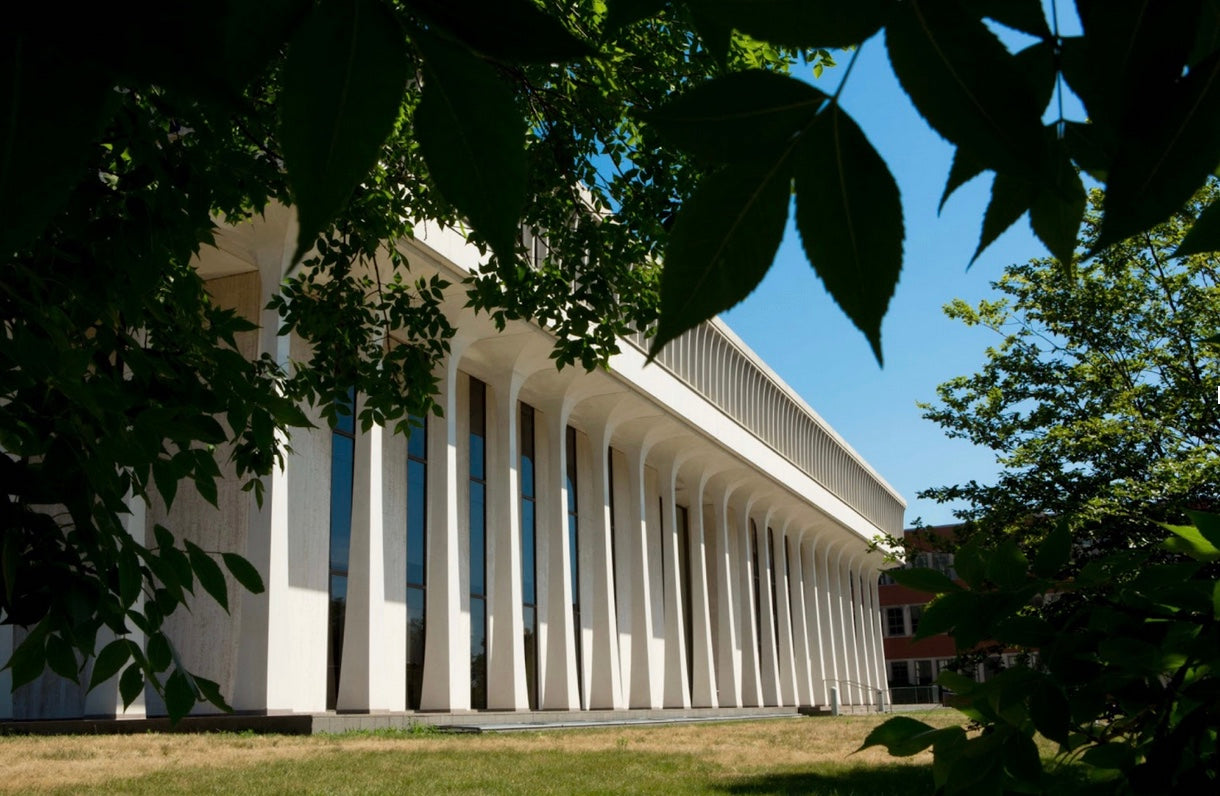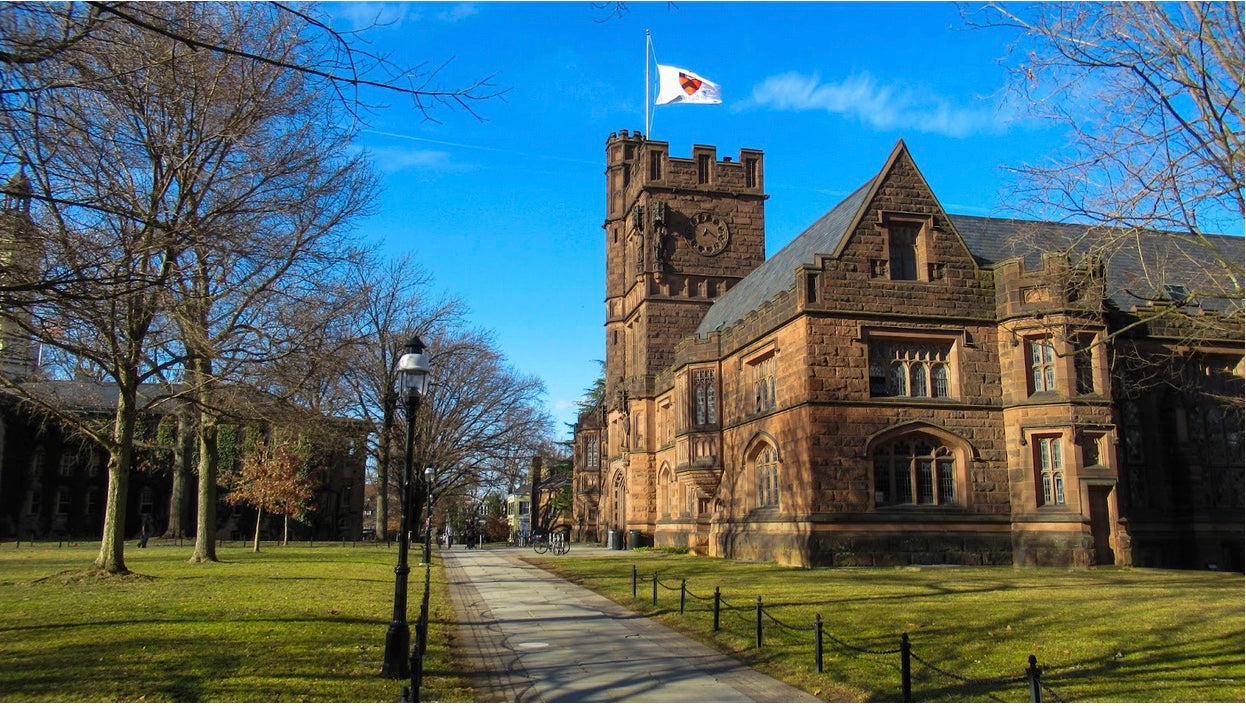Your Cart is Empty
December 18, 2023
To Princetonians for Free Speech Subscribers, members and friends,
The chaos on elite university campuses since the massacre in Israel on October 7 has been a wake-up call. Presidents of Harvard, University of Pennsylvania and MIT answered questions by the House Committee on Education during what is now the most viewed hearing ever. It revealed lawyer-prepped obfuscation and the glaring double standards that are the norm in higher education on free speech protections. Donors and trustees forced the resignation of Penn’s president Liz Magill and its board chair Scott L. Bok. Harvard’s board came out in defense of President Claudine Gay while many called for her ouster. Alumni and donors are realizing the true nature of the institutional transformations of their alma maters’ core principles and are demanding change. This is no surprise to us: For three years PFS has watched and reported on this transformation at Princeton and at other universities throughout the country. Join us to keep informed and learn more.
And please consider making a year-end gift to PFS!! It has been a remarkable year of growth and we need your support more than ever now. You can read our Annual Report for a summary of our accomplishments and our plans for next year. We would be extremely grateful if you consider making a donation. Many thanks for your interest and support. We wish you HAPPY HOLIDAYS, and we send you our very best wishes for the New Year.
On December 6th for the third year running, PFS co-founder Ed Yingling represented PFS at the 3rd Annual Free Speech Roundtable, a hearing at which members of Congress conduct informal discussion with invited experts and others knowledgeable about First Amendment rights and free speech in higher education. Hosted by Congressman Gregg Murphy, other representatives attending included Virginia Foxx, the Chair of the House Education and Workforce Committee, and Congressman Burgess Owens, the Chair of the Education Subcommittee. In addition to Yingling, other invitees included leaders of the Alumni Free Speech Alliance (AFSA), which Yingling formerly chaired, Davidsonians for Freedom of Thought and Discourse, and representatives of the Foundation for Individual Rights and Expression (FIRE), the American Council of Trustees and Alumni (ACTA), and three students. The roundtable took place the day after the most watched ever hearing in the House Education and Workforce Committee with the presidents of Harvard, MIT, and University of Pennsylvania, so the discussion was most interesting. Yingling reported on the situation at Princeton and discussed ideas for legislation, which Chairwoman Foxx indicated would be forthcoming.
And here’s an important lead article in the December 17 Wall Street Journal that shines a light on Princetonians for Free Speech and co-founder Ed Yingling:
Donors, Alumni Helped Take Down an Ivy League President. Is This a Moment or a Movement?
[Yingling] anticipates that over time prospective students will vote with their feet, especially if some employers stop hiring from certain universities because they don’t believe students are exposed to a range of views and are free to engage in open debate…. "The elite schools…will become known as schools of indoctrination and not true universities," said Yingling. "A Harvard degree will no longer be a ticket to success, it will be a scarlet letter."

Will Princeton’s Leadership Airbrush Witherspoon Out of Princeton’s History?
Stuart Taylor, Jr. Princetonians for Free Speech, December 4, 2023
What does the attempted cancellation of John Witherspoon, Princeton’s president (1768-1794) and signer of the Declaration of Independence, mean for academic freedom and free speech at Princeton? This question has been a focus of PFS’s attention since the start of the controversy last year. Here PFS President and co-founder Stuart Taylor, Jr. recounts the attempt to remove the statue of Witherspoon that stands in Firestone Plaza.
Response to Rep. Mikie Sherrill about Combatting Antisemitism on Campus
Christopher L. Eisgruber, December 13, 2023 Open letter, Princeton University office of the President
Eisgruber: Princeton ‘Would Respond Forcefully’ to Calls for Genocide
Julie Bonette, Princeton Alumni Weekly, December 13, 2023
Eisgruber issues statement in response to congressional hearings on antisemitism
The Daily Princetonian, December 12, 2023
Read President Eisgruber’s full statement HERE.
Princeton Punished Me for fighting to fix DEI and antisemitism on campus
Zachary Dulberg, New York Post, December 13, 2023
Articles of Interest

On Campus Speech we Need to Return to First Principles
Princeton professor Keith E. Whittington, The Dispatch, December 13, 2023
The Moral Decline of Elite Universities
Ben Sasse, The Atlantic, December 14, 2023
Msn.com carries the full article without a paywall HERE.
Joshua T. Katz, City Journal, December 14, 2023
The Day the Empresses Clothes Fell Off: Did the Congressional hearings finally expose the scandal of the Ivy League
Andrew Sullivan, The Weekly Dish, December 8, 2023

On December 11 the Boston Globe published an article by Harvard professor and renowned author Steven Pinker: "A five-point plan to save Harvard from itself." Pinker’s plan applies to Princeton and every university in the country, as his subtitle makes clear:
For universities to have a leg to stand on when they try to stand on principle, they must embark on a long-term plan to undo the damage they have inflicted on themselves…
We quote a slightly abbreviated version of Pinker’s five points:
Free speech. Universities should adopt a clear and conspicuous policy on academic freedom… Deplorable speech should be refuted, not criminalized. Outlawing hate speech would only result in students calling anything they didn’t want to hear “hate speech”…
Institutional neutrality. A university does not need a foreign policy, and it does not need to issue pronouncements on the controversies and events of the day. It is a forum for debate, not a protagonist in debates. When a university takes a public stand, it either puts words in the mouths of faculty and students who can speak for themselves or unfairly pits them against their own employer. It’s even worse when individual departments take positions, because it sets up a conflict of interest with any dissenting students and faculty whose fates they control…
Nonviolence. Universities should not indulge acts of vandalism, trespassing, and extortion. Free speech does not include a heckler’s veto that which blocks the speech of others. These goon tactics also violate the deepest value of a university, which is that opinions are advanced by reason and persuasion, not by force. And they bring further discredit to the institution: Parents and taxpayers wonder why they should support, at fantastic expense, students being forced to listen to political propaganda from other students when they should be learning math and history from their professors.
Viewpoint diversity. Universities have become intellectual and political monocultures... Many university programs have been monopolized by extreme ideologies, such as the conspiracy theory that the world’s problems are the deliberate designs of a white heterosexual male colonialist oppressor class…. Universities should incentivize departments to diversify their ideologies, and they should find ways of opening up their programs to sanity checks from the world outside.
Disempowering DEI. Many of the assaults on academic freedom (not to mention common sense) come from a burgeoning bureaucracy that calls itself Diversity, Equity, and Inclusion while enforcing a uniformity of opinion, a hierarchy of victim groups, and the exclusion of freethinkers…. An infamous example is the freshman training sessions that terrify students with warnings of all the ways they can be racist (such as asking, “Where are you from?”). Another is the mandatory diversity statements for job applicants, which purge the next generation of scholars of anyone who isn’t a woke ideologue or a skilled liar. And since overt bigotry is in fact rare in elite universities, bureaucrats whose job depends on rooting out instances of it are incentivized to hone their Rorschach skills to discern ever-more-subtle forms of “systemic” or “implicit” bias. … Universities should stanch the flood of DEI officials, expose their policies to the light of day, and repeal the ones that cannot be publicly justified.
To read Pinker’s full article without the Globe’s paywall, it appears at msn HERE.
Thank you for your interest in our new newsletter and our website. Please forward our newsletter and/or a link to our website to others who might be interested, or suggest that others subscribe directly HERE.
And please spread the word in your class notes! We want more Princetonians to know about PFS. Just email pawnotes@princeton.edu to submit your note.
Of course, we welcome your comments and suggestions HERE.
For more national and campus news concerning free speech, academic freedom and related topics, please visit our website HERE and be sure to follow us on Facebook, Instagram, and Twitter.
October 1, 2025
Dear PFS Subscribers, Members and Friends,
On September 25, PFS Vice-Chair Leslie Spencer ‘79 and Executive Director Angela Smith attended the third annual conference of the MIT Free Speech Alliance, an affiliated alumni group. The conference focussed on this fraught moment in higher education, with threats posed by both left and right and by the federal government.
August 29, 2025
Dear PFS Subscribers, Members and Friends,
Big news! PFS now has over 10,000 subscribers, representing 14% of the undergraduate alumni population.
“Resist vs. Reform” is this month’s Special Feature: President Christopher Eisgruber ‘83 was in the spotlight, forcefully defending his leadership role in the now publicly acrimonious divide. Some university presidents, including Eisgruber, urge their colleagues to present a united front against the Trump administration and refuse to admit a need to reform longstanding problems. The opposing camp, led by Chancellors Daniel Diermeier of Vanderbilt University and Andrew D. Martin of Washington University St. Louis, argues that “de-wokification” reform from within is the only way to resolve what is needed to restore public confidence in elite higher education.
July 1, 2025
Dear PFS Subscribers, Members and Friends,
June provides a welcome pause for PFS to try to make sense of a year uniquely disruptive in the history of American higher education. There was no better place to do this than at Heterodox Academy’s third annual conference, Truth, Power and Responsibility, held June 23 - 25 in Brooklyn, New York.



